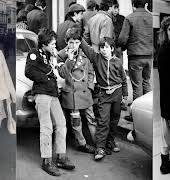Impressive headline figures and some incentive wins offer a light disguise to a budget that has left many business owners ‘disappointed’, ‘at a loss’ and feeling ‘totally unsupported’
Expectations were never higher for Budget 2025. With an additional investment of €3 billion versus last year, bringing the pot to €8.3 billion, it was a much hyped “giveaway” budget in the run up to a general election. This substantial spend coupled with the speculation around the €14 billion Apple tax windfall, businesses held their collective breath for the Government’s response.
Some wins included the Employment Investment Incentive (EII), the Start-Up Capital Incentive (SCI), and the Start-Up Relief for Entrepreneurs (SURE) which will be extended until the end of 2026. However, the Government’s increase in minimum wage to €13.10 and refusal to reintroduce the much-lobbied-for 9% VAT rate for the hospitality sector has caused widespread protest and frustration across numerous sectors.
Missed opportunity
Ireland’s SMEs comprise two-thirds of the workforce and account for 99.8% of all businesses. Ahead of the Budget announcement Minister for Finance Jack Chambers said: “Businesses, both large and small, are the lifeblood of our economy, and this Government is committed to supporting businesses so they can continue to grow, innovate, and create employment.’’ For many, his first Budget was a missed opportunity to address the challenges facing home-grown enterprises, small and large.
Karen Clince, CEO of Tiger’s Childcare one of Ireland’s biggest providers of childcare with a team of over 380 employees caring for over 2,000 children across Ireland and the UK, expressed concerns for her sector following the Budget. “Overall, I am disappointed. The headline figures look really impressive and [there is] a huge jump for early years, however, it’s just an nnualization of most of which was given last year. The increases for the Affordable Childcare Scheme, increases for core funding are just annualised until September to Christmas this year.”

There is no point in the Government giving more money to people for childcare if they cannot access a place for their child.” Karen Clince, Tigers Childcare
Staffing still remains a fundamental issue in the childcare sector. “Pay and conditions are the biggest issue in the sector for our colleagues,” she explains. “Without dealing with that issue . . . there’s a lack of places for parents then there is a lack of ability for people to be able to go and work. The only way we are going to be able to expand the market is by having more people working within it. There is no point in the Government giving more money to people for childcare if they cannot access a place for their child.”
Retaining talent
Mairead Harbron, tax expert and Partner at PwC, agrees that supports to attract and retain talent were limited in te Budget. “There was a lot that we would have liked to have seen in terms of measures to attract and retain key talent and particularly provisions that allow domestic businesses [who can be cash-poor on the SME side] . . . to compete with FDI (foreign direct investment) salaries. There’s a fantastic scheme called KEEP but . . . it’s too cumbersome there are too many restrictions on the relief, so we would have liked to have seen improvements and enhancements of that scheme to make it more attractive,” she explains.
“We got a PRSI increase for businesses in the retail and hospitality sector that employ a lot of people . . . for any employer PRSI increases are a real cost to them. We do have one of the lowest social insurance rates across Europe, so that’s where the increase is coming from, but it’s difficult for businesses at a time when minimum wage is also increasing. We would also like to see . . . measures that support employers to give the provision of accommodation to employees. If they were able to provide more affordable accommodation, in a tax efficient way to employees that means the lower wages would be supported and sustained rather than just constant wage pressure.’’
Karen believes the Government needs to have “a real understanding of the operational costs of the business.”
Owner of Poppie’s Café in Enniskerry, Co Wicklow, Peter Norton agrees. He has been in business for almost 23 years. However, after over two decades of successful trading, surviving recessions and a global pandemic he says he has never operated on such scare margins and the Government has to deal with the “cost of doing business” crisis.
It’s no secret that the temperature has been at boiling point amongst businesses across the hospitality sector. Seven hundred businesses ceased trading in the 13 months since returning to pre-pandemic 13.5% VAT rate and those still operating have been lobbying for the reinstatement of the 9% rate.
You didn’t see cafes around Croke Park charging €25 for a cappuccino when Coldplay were playing – hotels have no issue with it.” Peter Norton, Poppies Café
Poppie’s has seen large increases in energy bills, the cost of ingredients and cost of staffing. The ingredients bills rose by 15% in Spring 2024 and despite their efforts around sustainability, their energy bills are double what they were in 2022. “It is eating and eroding at the margins where someone is either forced to put up their prices or close. My concern going forward is if the small independent cafes keep closing, there is going to be no product left and you will be left with high street, and international chains. I don’t think that’s what tourism in Ireland is about,” says Peter.
VAT rates
Peter wasn’t surprised at the at the Government’s refusal to revert to 9% VAT for the hospitality sector, but feels the decision shows a lack of vision. “In terms of restaurants, cafes, and hotels they have to be decoupled – you didn’t see cafes around Croke Park charging €25 for a cappuccino when Coldplay were playing, whereas hotels have no problem [with it],” he says.
Asked about the reintroduction of the 9% VAT rate, PwC’s Mairead says: “It’s so interesting because Ireland has such a fantastic hospitality sector – we have really great quality Irish food and it’s part of the bedrock of our culture. As a country, we want to retain this and I do believe that the Government wants to. I think this is just a simple issue of maths. If you were an economist coming in to look at this, you’ve got near full employment and an unprecedented exchequer surplus of €27 billion, so the economy looks to be thriving from that perspective . . . I don’t believe there is a deliberate strategy to cull struggling businesses whatsoever, I think it was a matter of once the ceiling of what the tax measures could be set [was reached] there just wasn’t much left to give into a VAT rate reduction.”

“I think the unfortunate thing here is that you have all these businesses that are struggling and you have unfortunately expectations that were written in advance of the Budget. I’ve also spoken to a number of businesses that were banking on it and are deeply upset that it didn’t come through.”
We would like to see measures that support employers to provide affordable accommodation, in a tax efficient way, to employees.’’ Mairead Harbron, tax expert and partner, PwC
Peter explains how as a business they have strived to make savings through better choices for the environment. “We, in Poppie’s take sustainability very seriously and have managed to reduce our energy bills by about 30%, waste by 36% and water by 20%.”
The hollowing out of small businesses across the country concerns him, as he explains the importance of just one of the many functions a local cafe provides to its community. “We have several people who meet once a week and the only time they meet is in Poppie’s, so even from a mental health point of view it’s incredibly shortsighted,” he says.
Challenge of training
Cork City centre hair salon owner Sabrina Hill is no stranger to the mounting pressures of trading in such unprecedented times for SMEs. She fears Budget 2025 will have a massive impact on her industry. “However depressing it has been in the last couple of months, to be in hairdressing it’s much worse. You just feel so unsupported (by the Government) as a business owner who creates employment and looks after the livelihood of so many others, I just felt everything was absolutely against us.”
Since Covid, Sabrina’s salon, Kopper, has seen its energy costs quadruple. She now faces increased labour costs with the increase in the minimum wage and she explains, “I understand there’s a heavy burden on people with the cost of living, but I cannot afford to raise my prices anymore, it’s actually impossible.”
Sabrina’s sector also has a major recruitment crisis. Despite offering extensive in-house education and training in a busy high street location, she has received just four CVs for junior staff in the last 12 months. “We have found ourselves in a situation where there is a scarcity of senior stylists and a lack of young people coming into the industry with no support from the Government on how to change that. Hairdressing has just been forgotten about, you can see that with (other) trades they are inside (third-level institutes) such as MTU (Munster Technology University), we have lost our apprenticeships. The focus is on me to educate and train these girls.”
Sabrina urges the Government to help protect the future and integrity of hairdressing. “There has to be grants in place for salons to take on juniors so they can get young people to join into the industry . . . I close my salon on Tuesdays to do train staff at a cost to the business on that day.’’
Supporting start-ups
Returning to PwC’s Mairead Harbron, we aks if there is anything the Government could be doing to support entrepreneurs to keep going or start-up with the financial current challenges? “There’s a lot the government can do in supporting entrepreneurship and there is financial support through grants,” says Mairead. “Certain tax incentives are available . . . It’s about simplifying access to those and reducing any bureaucratic hurdles in accessing them.”
“More strategically, we need to continue investment in education and training programmes around fostering innovation. Organisations like Enterprise Ireland run programmes as well as providing advice. The nice thing about those initiatives is they also provide a network. Being an entrepreneur and in a start-up can be a really lonely and challenging place so having a network of other entrepreneurs is really important in encouraging people to take that leap.”
[Editor’s note: For any entrepreneurs who are seeking a powerful network, we would love to welcome you to the IMAGE Buiness Club.]




















